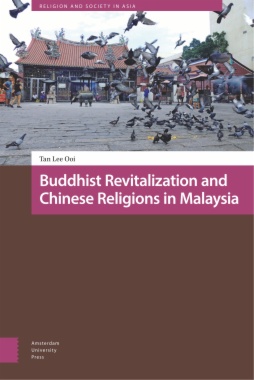Buddhist Revitalization and Chinese Religions in Malaysia tells the story of how a minority community comes to grips with the challenges of modernity, history, globalization, and cultural assertion in an ever-changing Malaysia. It captures the religious connection, transformation, and tension within a complex traditional belief system in a multi-religious society. In particular, the book revolves around a discussion on the religious revitalization of Chinese Buddhism in modern Malaysia. This Buddhist revitalization movement is intertwined with various forces, such as colonialism, religious transnationalism, and global capitalism. Reformist Buddhists have helped to remake Malaysia’s urban-dwelling Chinese community and have provided an exit option in the Malay and Muslim majority nation state. As Malaysia modernizes, there have been increasing efforts by certain segments of the country’s ethnic Chinese Buddhist population to separate Buddhism from popular Chinese religions. Nevertheless, these reformist groups face counterforces from traditional Chinese religionists within the context of the cultural complexity of the Chinese belief system.

